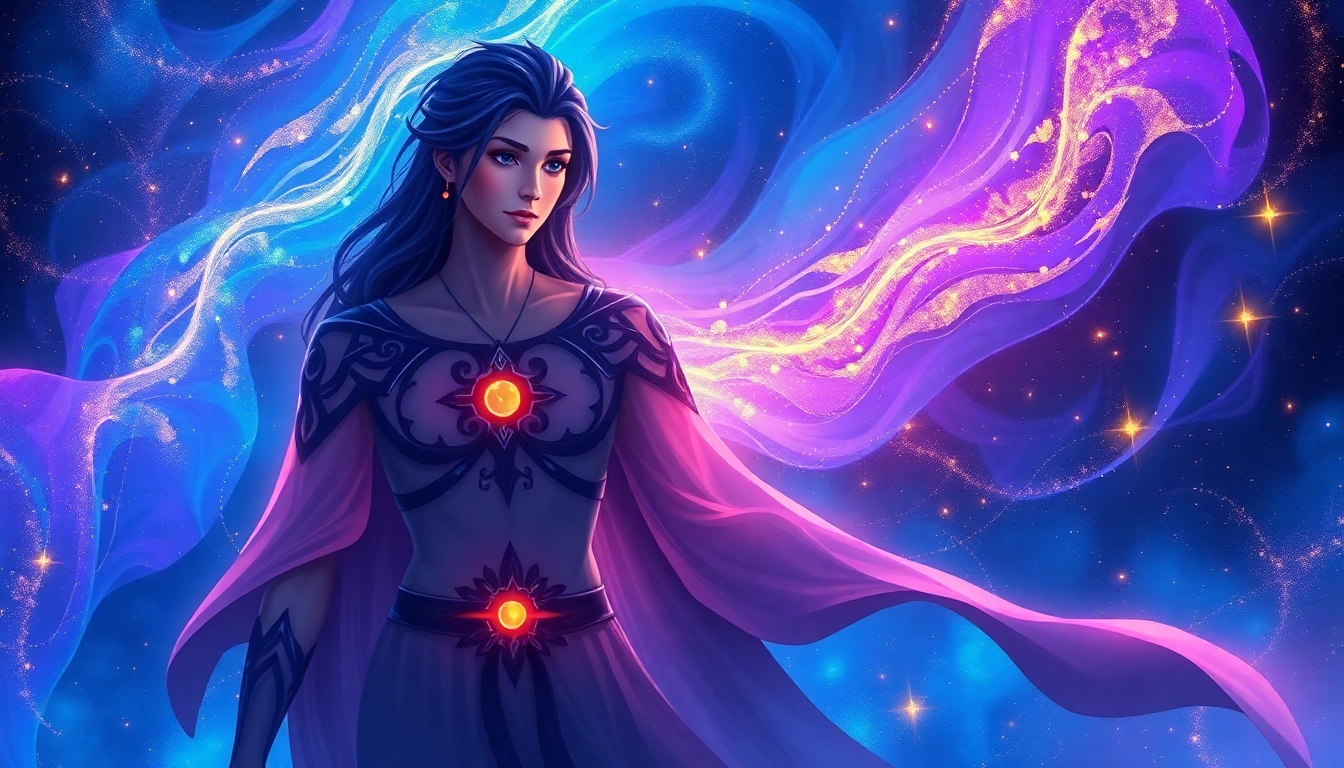
Understanding the Omegaverse: A Comprehensive Exploration of a Unique Subgenre
The omegaverse is a fascinating and complex subgenre of speculative fiction that has garnered a dedicated following across various media, including fanfiction, novels, and visual storytelling. Rooted in mythology, biology, and social dynamics, the Omegaverse explores alternative social hierarchies and intimate relationships grounded in unique biological traits and societal roles. Its popularity has surged over recent years, partly due to its ability to blend elements of fantasy with deep psychological and emotional themes, creating immersive worlds that challenge traditional notions of gender, power, and identity.
The Origins and Evolution of the Omegaverse Genre
The origins of the Omegaverse trace back to the early 2010s within fan communities, particularly in fanfiction circles focusing on popular media franchises like Supernatural, Twilight, and others. This subgenre emerged as a creative twist on existing character dynamics, introducing the concept of a biological hierarchy that significantly influences social interactions and personal relationships. The term itself is often associated with a universe where characters are classified into distinct biological and social categories—Alphas, Betas, and Omegas—each with specific traits and roles.
Initially, the Omegaverse was a niche phenomenon, but its compelling premise and the flexibility of its world-building allowed it to expand rapidly. Writers and fans began to develop more intricate lore, exploring themes of dominance, submission, societal norms, and personal identity. Over time, the genre evolved from simple “biological roleplay” into a rich narrative landscape that encompasses complex character development, societal critique, and diverse relationship models. Today, the Omegaverse continues to thrive, with an ever-growing community that produces a wide array of stories across different media platforms.
Core Concepts and Terminology
Alphas, Omegas, and Betas
At the heart of the Omegaverse are three primary biological categories: Alphas, Omegas, and Betas. These designations define not only physical traits but also social roles and behavioral tendencies.
- Alphas: Often depicted as dominant, assertive, and physically strong, Alphas are typically viewed as leaders within the social hierarchy. They possess heightened instincts for protection and territorial behavior, often serving as the “top” in romantic and sexual relationships. In many stories, Alphas exhibit a natural charisma and a commanding presence that influences their interactions with others.
- Omegas: Characterized by more submissive or nurturing traits, Omegas are often portrayed as emotionally sensitive and biologically predisposed to various reproductive roles. They may experience hormonal cycles akin to heat, which influence their behavior and interactions. Omegas are frequently depicted as seeking comfort or protection, and their roles often challenge traditional gender stereotypes.
- Betas: Serving as a middle ground, Betas are usually portrayed as balanced individuals who do not exhibit the extreme traits of Alphas or Omegas. They often function as mediators within social hierarchies and may have more flexible roles in relationships and society.
Hierarchies and Dynamics
The social structure within the Omegaverse is often a reflection of these biological categories, creating a hierarchy that influences every aspect of life—from leadership and social standing to romantic and sexual relationships. Dominance and submission play central roles, with Alphas generally occupying higher social positions and Omegas often being more vulnerable or seeking protection. However, stories frequently explore the nuances and complexities of these roles, emphasizing that individual personalities and choices can transcend biological predispositions.
These dynamics extend into the realm of consent, emotional connection, and societal expectations, making the Omegaverse a fertile ground for exploring themes of power, vulnerability, and mutual understanding.
Cultural Impact and Popularity
The Omegaverse has significantly impacted fan communities and mainstream fiction, largely due to its ability to reframe traditional gender roles and social norms. Its popularity is evident in the proliferation of fanfiction sites, online forums, and independent publications dedicated to Omegaverse stories. The genre resonates with audiences seeking narratives that blend fantasy elements with real-world issues like sexuality, gender identity, and social hierarchy.
Moreover, the Omegaverse serves as a mirror for exploring societal taboos, power dynamics, and the fluidity of identity. It provides a space where writers and readers can experiment with alternative lifestyles and relationships, often challenging conventional notions of masculinity, femininity, and authority. This has led to a diverse range of stories—ranging from romantic and erotic to political and philosophical—that continue to expand the genre’s influence.
In addition to fan communities, many independent authors and publishers have embraced the Omegaverse, producing novels and anthologies that push the boundaries of traditional storytelling. The genre’s ability to adapt and evolve ensures its relevance in contemporary speculative fiction.
Common Themes and Tropes
Dominance and Submission
One of the most prominent themes within the Omegaverse is the exploration of power dynamics. Stories often depict Alphas as dominant figures who exert control, while Omegas may seek or resist submission, creating a tension that drives character development and plot progression. These themes are sometimes metaphorical, representing broader societal struggles, or literal, focusing on romantic and sexual interactions.
Heat Cycles and Reproductive Biology
Omegaverse narratives frequently incorporate biological elements such as heat cycles, which influence behavior and emotional states. During heat, Omegas may experience heightened arousal, vulnerability, or a need for intimacy, leading to storylines centered around consent, boundaries, and mutual care. Reproductive biology also plays a role, with some stories exploring themes of fertility, pregnancy, and genetic traits.
Family and Social Structures
Family dynamics are often reimagined within the Omegaverse, with clans, packs, or communities forming based on biological categories. These structures can reflect real-world social hierarchies or serve as allegories for societal issues like discrimination, privilege, and social mobility. Stories may focus on alliances, conflicts, or the struggles of individuals navigating these complex networks.
Identity and Self-Discovery
Many Omegaverse stories delve into personal identity, exploring how characters reconcile their biological roles with their desires, morals, and societal expectations. Themes of acceptance, self-awareness, and transformation are common, making the genre a rich tapestry for character-driven narratives.
Representation in Media
The Omegaverse has found its way into various media formats beyond fanfiction, including webcomics, novels, and visual art. Some mainstream authors and creators have incorporated Omegaverse themes into their original works, pushing the boundaries of conventional storytelling. This diversification has facilitated broader acceptance and understanding of the genre’s themes.
In visual media, Omegaverse-inspired characters often appear in cosplay, graphic novels, or animated series, emphasizing their distinctive traits and societal roles. These representations contribute to the genre’s visibility and cultural relevance, inspiring new generations of fans and creators.
While some mainstream critics have debated the genre’s portrayal of sexuality and social hierarchy, its impact on discussions about gender fluidity and alternative relationship models remains significant. The genre continues to evolve, reflecting changing societal attitudes and expanding the scope of speculative fiction.
Exploring the Psychological and Social Aspects
The Omegaverse offers a unique lens through which to examine psychological and social themes. Its emphasis on biological roles and hierarchical structures prompts questions about nature versus nurture, the influence of genetics on personality, and the societal implications of predetermined roles.
Many stories explore the psychological impact of these roles, such as feelings of inadequacy, empowerment, or rebellion. For Omegas, the experience of heat cycles and societal expectations can evoke complex emotions related to vulnerability and autonomy. Alphas may grapple with leadership responsibilities or societal pressure to conform to dominance archetypes.
Socially, the genre challenges traditional power dynamics, encouraging readers to question authority, gender norms, and societal expectations. It serves as a platform for discussing consent, mutual respect, and the importance of individual agency within hierarchical systems.
Therapeutically, the genre can offer catharsis and understanding for readers exploring their own identities and relationships, especially those who feel marginalized or misunderstood. The fictional worlds of the Omegaverse mirror real-world struggles, providing a safe space for reflection and dialogue.
The Role of Consent and Controversy
Despite its popularity, the Omegaverse is not without controversy. Its depiction of hierarchical and often sexualized relationships raises questions about consent, exploitation, and the portrayal of power imbalance. Critics argue that some stories reinforce problematic stereotypes or romanticize non-consensual situations.
Proponents, however, emphasize that many Omegaverse narratives actively explore themes of consent, mutual understanding, and emotional safety. They argue that the genre’s potential for nuanced storytelling allows for the examination of complex issues surrounding power and vulnerability.
As with any genre that deals with sensitive themes, responsible storytelling and reader awareness are crucial. The community encourages discussions about ethical portrayals, boundaries, and the importance of consent, fostering a more conscious approach to storytelling within the Omegaverse.
Creating Omegaverse Characters and Stories
For writers interested in developing their own Omegaverse stories, understanding the core concepts and themes is essential. Character creation involves defining their biological category, personality traits, backstory, and how they navigate societal hierarchies. Balancing biological predispositions with individual agency creates compelling characters who feel authentic and relatable.
When crafting stories, consider the following:
- Develop detailed world-building that explains the social structure, rules, and biological traits.
- Explore character motivations, desires, and conflicts beyond their assigned roles.
- Address themes of consent, emotional connection, and personal growth.
- Incorporate cultural nuances, societal norms, and conflicts to enrich the narrative.
Additionally, many writers draw inspiration from existing lore or create entirely original mythologies, blending biological science fiction with fantasy elements. The key is to craft stories that reflect authentic emotional experiences while respecting the genre’s conventions and sensitivities.
Future Trends and Developments
The Omegaverse continues to evolve as new voices and perspectives enter the scene. Future trends may include more diverse representations of gender and sexuality, inclusive world-building, and a greater emphasis on ethical storytelling. As societal conversations about gender, power, and relationships grow more nuanced, the genre is poised to explore these themes more deeply.
Technological advancements, such as AI-driven storytelling platforms like CrushOn AI, also have the potential to revolutionize how Omegaverse stories are created and experienced. These platforms enable users to customize characters, maintain ongoing conversations, and generate dynamic narratives that adapt to individual preferences, making the genre more accessible and interactive than ever before.
Moreover, cross-media adaptations—such as visual novels, interactive webcomics, and virtual reality experiences—could provide immersive ways for fans to engage with Omegaverse worlds, fostering community and creative collaboration.
As the genre matures, it will likely continue to challenge boundaries, inspire innovation, and serve as a mirror for contemporary social issues.
Resources and Communities for Fans and Writers
For those interested in exploring or creating Omegaverse content, numerous online communities, forums, and resources are available. Fanfiction platforms like Archive of Our Own host vast repositories of Omegaverse stories, often with tags and filters to help readers find narratives aligned with their interests.
Writing communities and workshops can provide support, feedback, and collaboration opportunities. Many authors also share writing tips, world-building guides, and ethical considerations to foster responsible storytelling.
Additionally, academic articles, podcasts, and online courses delve into the thematic and cultural significance of the genre, offering deeper insights into its origins and impact. Engaging with these resources can enrich understanding and inspire new creative endeavors.
Ultimately, the Omegaverse serves as a vibrant, evolving subgenre that invites exploration, creativity, and dialogue. Whether you are a reader seeking immersive stories or a writer crafting new worlds, the genre offers a rich tapestry of themes and possibilities to discover.
Conclusion: Embracing the Depths of the Omegaverse
The Omegaverse is more than just a fictional universe; it’s a dynamic space where biology, society, and psychology intersect. Its ability to challenge norms and explore complex human experiences makes it a compelling genre for both creators and audiences. As societal attitudes continue to change, so too will the stories and representations within the Omegaverse, reflecting ongoing conversations about gender, power, and identity.
Whether as a tool for storytelling, self-expression, or social critique, the Omegaverse remains a fascinating and influential subgenre that invites us to question what defines us and how we relate to one another. Its future promises even more innovation, inclusivity, and depth—making it a genre worth watching and engaging with for years to come.
To gain a comprehensive understanding and dive deeper into this captivating world, explore What is Omegaverse and discover the myriad ways this genre continues to evolve and inspire.



